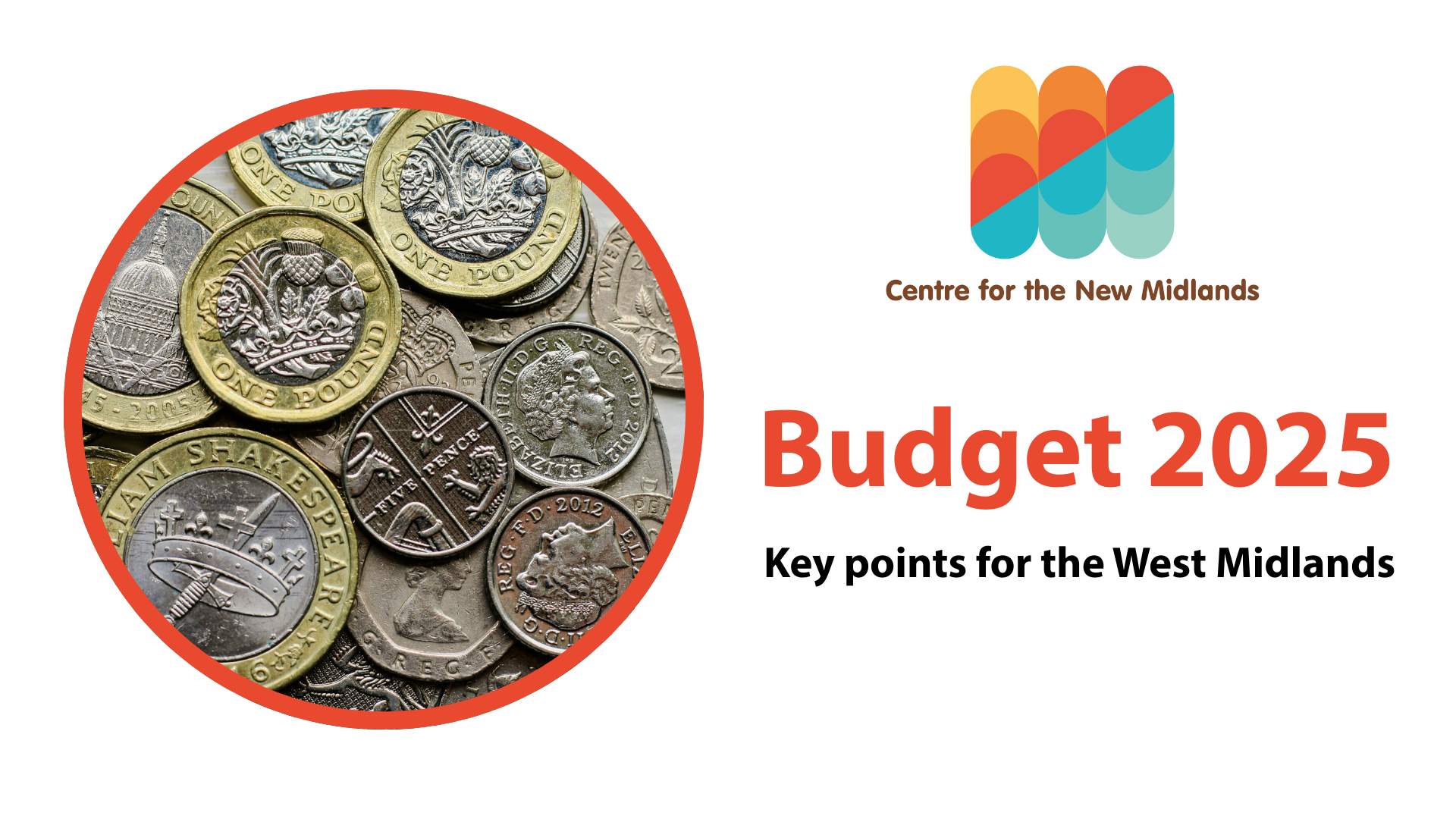In this article, Mark Hughes-Webb (CEO & Founder, The Space-2 Group) poses the question: Regenerative screen tourism – is it achievable and what factors influence a region’s approach to it?
(July 2025)
Last month, I attended the West Midlands Tourism Forum and it was great to be able to hear from the region’s leading tourism organisations as well as have conversations with venues, attractions and those companies that support and supply the growing tourism/visitor economy.
One of the speakers, screen tourism consultant, Seren Welch, provided a compelling case for why these organisations and companies should be looking to embrace and better integrate screen tourism into their development plans highlighting how other regions had benefited from the investment and increased profile that film and television delivers.
However, roundtable discussions quickly become more interesting once you throw in the concept of regenerative tourism and even more so when it comes to regenerative screen tourism. The question quickly becomes how do you drive growth in a sector without compromising the planet and the communities who can both benefit from but also be exposed to the impacts that these activities have. Sitting across the table from representatives from airports and the aviation sector certainly makes the conundrum of more international visitors without fueling the climate crisis very real.
In many ways the challenge for tourism is the same as it is for media production – how to bring the people, the investment and the activities to the region without the negative impacts?
Developing a regional regenerative screen tourism strategy requires a coherent and sustainable approach that balances economic benefits with environmental stewardship, cultural integrity, and community wellbeing. However, sometimes that is not possible within the timescales or scope of successful film and television projects. Game of Thrones had a catalytic impact on not just Northern Ireland’s tourism industry but on the economy as a whole. Its global success took the region by surprise and it took a couple of years for the tourism industry to pivot onto the opportunities and maximise the economic benefits. Having seen these multiplier impacts for myself, from coach tour companies and Game of Throne visitor trails to new support businesses for media production companies, full credit to the stakeholders for grabbing those opportunities and running with it to deliver on that potential.
More locally but equally global, the Peaky Blinders effect has been a juggernaut of a show for growing brand recognition of a place albeit without some of the highlights that would traditionally be promoted in the form of filming locations in region to visit (the Black Country Museum aside) or local companies who could benefit from exploiting the PR connected with a show. However, it’s been interesting to watch how the Peaky Blinders’ murals on the walls of the new Digbeth Loc. Studios have become a mecca for visitors looking to connect with the brand through social media content and with the film to be released shortly the Digbeth Estate will be expecting to see its name up in lights again and its streets to become a destination in their own right.
As has been evident over the last few years, the impact of over-tourism and the resulting protests from severely impacted local communities in locations such as Barcelona and Santorini have grabbed the media’s attention and shone a spotlight on the unsustainable practices, from Airbnb lettings pricing out local residents to higher prices for hospitality venues, food and drink.
It’s clear from the outset that in order to deliver the holy grail of regenerative screen tourism there are a host of factors to consider.
From the outset there needs to be community engagement involving local residents, the likely impacted communities, tourism operators, media producers and local authorities. The bigger picture has to be focused on sharing in the benefits that come from the activities, ensuring that tourism revenues and opportunities directly benefit the local population. There also has to be cultural sensitivity with a need to protect not just cultural and heritage location assets but cultural heritage more widely to ensure representations are respectful and accurate.
When it comes to the tricky subject of environment sustainability, its imperative that where sustainable production techniques are adopted, they are carried over into the resulting tourism activities. Encouraging active travel, using electric vehicles, pre-planning and procuring sustainable suppliers and reducing the use of single-use materials/products should be mandatory across the spectrum of activities. Thinking ahead when hosting higher profile shoots, it’s important to understand the environmental limits of filming and tourism in specific locations especially when it comes to capacity and frequency of visits once the set-jetting begins.
This may even lead to the need to undertake screen tourism footprint management, using zoning, permits, and even visitor caps to prevent degradation of sensitive village, rural or natural sites that have been used as locations. However, there is a significant opportunity in avoiding over-tourism through actively market lesser-known areas and locations to producers to spread the resulting visitor impact and extend the tourism season.
As Create Central, (the trade body for the West Midlands creative content sector)’s strapline “Home of Original Storytelling” asserts, there is a value in having clarity when it comes to place branding and identity. Leveraging the region’s unique narratives, landscapes, and culture in a way that reinforces local identity is amplified through film and tv and then multiplied through social media thereafter.
As with any future-facing initiative, the need for cohesive destination marketing is key. The need to align film, tourism, and regional branding strategies for consistency is paramount but recognising that the responsibility for this may rest with multiple #DMOs (Destination Management Organisations), numerous councils and public bodies as well as organisations such as Film Offices, this is not an easy task. For the West Midlands, the creation of a new Film and Production Services Office, Production Central, provides the opportunity to develop that cohesive, multi-stakeholder plan.
At a time of challenge for the UK economy’s growth and improved productivity, there is a equally a case to make for regenerative screen tourism to become a driver for economic diversification and improved resilience. With the skills agenda at the forefront of the new mayor’s strategy for the region, local capacity building through training residents for roles in film production and tourism (e.g., guides, technicians, extras) should be a given. An added benefit would be to see the enhancement of business support and the supply chain for this evolving sector, by encouraging local entrepreneurship in hospitality, crafts, and services that benefit from screen tourism. Moreover, to address some of the issues relating to year-round viability, developing offerings that attract visitors beyond the initial film/tv show-related hype can help develop a ‘long-tail’ model.
All of this activity does not happen sustainably without the appropriate infrastructure and logistics. Accessible locations are a key aspect to an inclusive screen tourism offering – ensuring the region has the transport, accommodation, and digital infrastructure to support productions and tourists alike should be at the forefront of discussions and initiatives. The emergence of and growing reputation of the West Midlands as a home to #createch businesses and products may well find a sweet spot in connection with screen tourism with the scope to leverage IP to create new experiences, immersive and online, that not only can show new models for income generation but will also help new audiences especially those that may be excluded from travelling or unable to access locations.
Our own business venture into developing LOCATIONZ™ VR, a Virtual Production Toolkit has seen us explore the potential to embed screen content into immersive location footage, delivering an integrated virtually real version of visiting a location with the added benefit of film footage overlaying the scene rather than the traditional method of holding a photo up against the real world location!
As an emerging sector, and with Birmingham hosting SetJet 25 – the World Screen Tourism Summit, there will need to be more input into both policy and governance at both the local and regional level. Best practice will hopefully be shared at the conference which is attracting delegates from all over the globe and it will be interesting to see what other production centres have done when it comes to regulatory or voluntary frameworks and policies for filming permits, environmental protection, and tourism management.
As the awareness grows of the opportunities presented through focusing on regenerative business models for developing screen tourism, there will be exciting cross-sector collaborations not least for organisations such as Create Central, Sustainability West Midlands and Culture Central, with the hope that goals can be aligned across across film, tourism, cultural, and environmental agencies.
With the pending formation of a West Midlands Economic Development Vehicle, evolving from the West Midlands Growth Company and the ongoing work of the West Midlands Destination Development Partnership (#ddp), it will be interesting to see how both funding and incentives can be better targeted at delivering on the ambitions of regenerative screen tourism for example through grants or rebates for sustainable productions and regenerative tourism initiatives.
As with all great tourism experiences, there is a strong case for using screen tourism as an educational tool. Using interpretive content, through offering guided tours, AR/VR experiences, and digital signage that educate visitors on the site’s significance has a major role to play. The recent launch of an immersive AR (augmented reality) experience by Kenilworth Town Council for Kenilworth Abbey is a case in point. Using their smartphones or tablets, guests are able to unlock a vivid reconstruction of the abbey’s storied past, witnessing its architectural grandeur, the daily lives of its residents, and pivotal moments in history. This cutting-edge blend of technology and heritage offers a createch-enabled way to connect with the abbey’s history, allowing visitors to explore interactive scenes, hear stories from historical figures, and immerse themselves in the rich tapestry of Tudor England.
All of this activity and related promotion will do the most important thing – raising awareness of regenerative tourism. Through promoting responsible behaviours through campaigns and storytelling, we have a great opportunity to bring all stakeholders along on the journey and have a fighting chance of ensuring that growth in this sector does not have the negative environmental and societal impacts that the traditional tourism models have created to date. Equally, the reach is expanded to new audiences through film literacy, fostering understanding of how film and media shape perceptions of place and managing expectations of visitors as to the responsibilities that come with their footprints.
We are at the very start of leveraging the potential of this regional opportunity. Through dialogue with all stakeholders and proactive engagement with film and TV producers and other creative content storytellers, we can create a compelling global narrative that the West Midlands is a place to come, experience, engage, enjoy and create lasting memories and new stories that don’t negatively impact on the communities who host them or the planet. I for one am excited by the scale of the opportunity and for the conversations ahead as we build a regenerative production ecosystem here in the West Midlands.
ABOUT OUR AUTHOR:
Mark is the Founder and CEO of The SPACE-2 Group, a Midlands-HQ’ed group of businesses focused on sustainable production, assets and creative ecosystems. With a particular specialism in regenerative, meanwhile uses of commercial property, SPACE-2 has a significant 15 year track record in promoting and managing activities and spaces for the film, TV and events sectors and is a leading location advisor working with a wide range of property owners to enable sustainable-first, short-term use for creative projects ranging from US feature films (Mission Impossible, Avengers) and high-end TV drama (Bodyguard, Line of Duty) to events such as London Fashion Week.
Mark has also launched Albert certified film & TV props service, Revival Props, a start-up hyperlocal digital agency, Moncoe, a rural coworking business, MyCRO and provides research and consultancy services looking at sustainability, the circular economy and the development of film studios, production facilities and wider regeneration/placemaking projects.
Mark is also founder of Film Warwickshire, a member of the Coventry & Warwickshire LEP Digital and Creative Group and Sustainability West Midlands, an advisor to Playbox Theatre (Warwick), a keen cyclist and occasional DJ.








